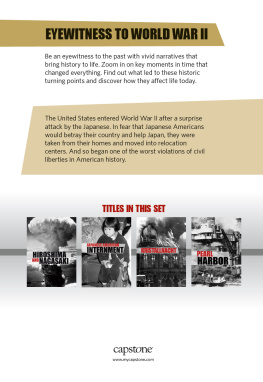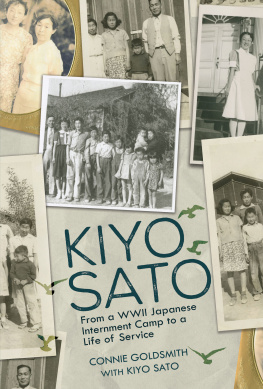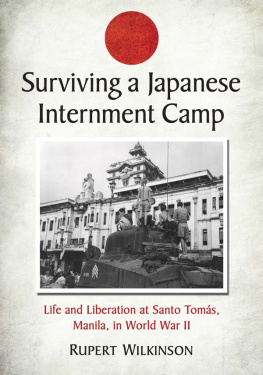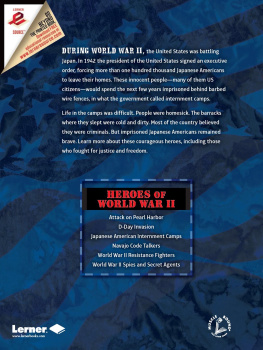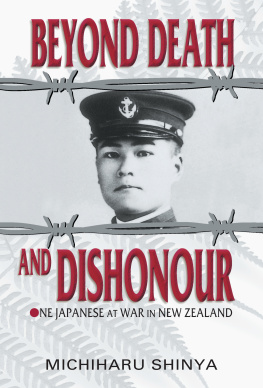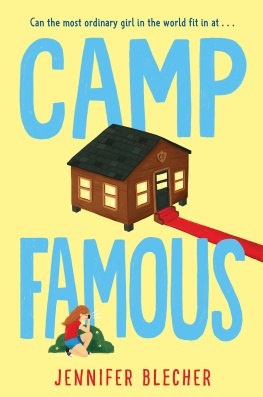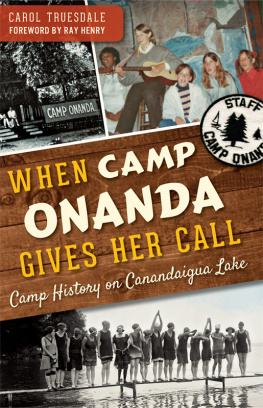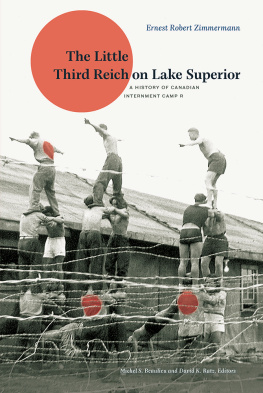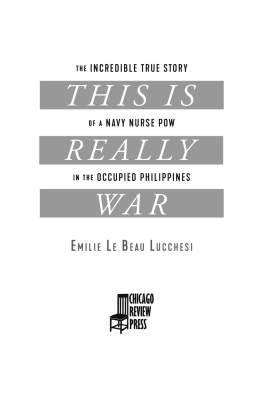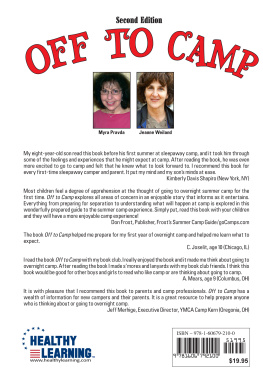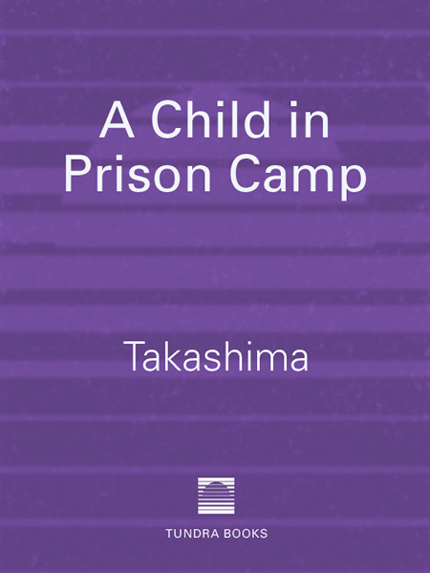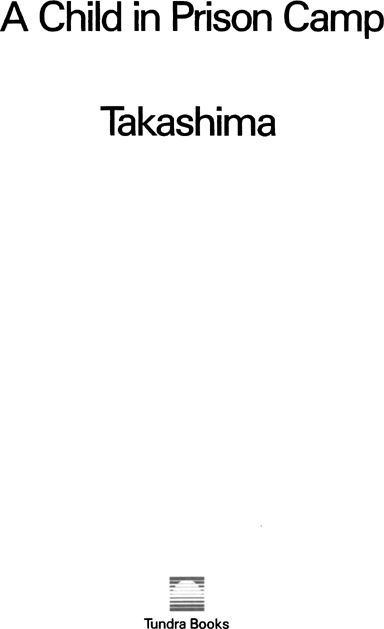Copyright 1971 by Shizuye Takashima Published in Canada by Tundra Books 75 Sherbourne Street, Toronto, Ontario M5A 2P9 Published in the United States by Tundra Books of Northern New York, P.O. Box 1030, Plattsburgh, New York 12901 Library of Congress Control Number: 98-61091 All rights reserved. The use of any part of this publication reproduced, transmitted in any form or by any means, electronic, mechanical, photocopying, recording, or otherwise, or stored in a retrieval system, without the prior written consent of the publisher or, in case of photocopying or other reprographic copying, a licence from the Canadian Copyright Licensing Agency is an infringement of the copyright law.
Takashima, Shizuye A child in prison camp eISBN: 978-1-77049-059-8 1. Takashima, Shizuye. 2.
Japanese Canadians Evacuation and relocation, 1942-1945 Personal narratives. 3. World War, 1939-1945 Concentration camps British Colombia. 4. Japanese-Canadian children British Colombia Biography. Title. Title.
D768.15.T34 1998 940.531771092 C98-931697-1 We acknowledge the financial support of the Government of Canada through the Book Publishing Industry Development Program and that of the Government of Ontario through the Ontario Media Development Corporations Ontario Book Initiative. We further acknowledge the support of the Canada Council for the Arts for our publishing program. v3.0 a poignant and beautiful little book. In a simple text and a series of striking watercolors, she presents a haunting record of that time Out of the bewildering atmosphere of a generation ago, comes this lovely book which, to all Americans and Canadians, is also a national embarrassment. San Francisco Chronicle The power and control of the pictures are matched by the text in which a dispassionate account of racism and family disintegration alternates with a set of impressionistic vignettes based on the daily life of a lively, likable child. The New York Times Book Review Takashima manages to recreate the wonder and excitement and objectivity which enables children to live unscathed through the ugliest of experiences Her book, both in its text and in the haunting delicate watercolors which illustrate it, is a work of art. Books in Canada We had all but forgotten that it is possible to write a tender, moving book using at most 800 words our daily vocabulary consists of. Books in Canada We had all but forgotten that it is possible to write a tender, moving book using at most 800 words our daily vocabulary consists of.
In language as simple as a mountain brook she evokes images of quiet desperation, of trusting hope because it is such a work of art, it literally brushes our soul with a power we cannot forget. Victoria Daily Times There is no bitterness, only a wonder As an indictment of a time when all the vaunted guarantees of a democracy failed in the face of sheer racial antagonism, the book is more effective than any ranting political polemic. California Daily News. For my beloved Guru, Ralph Harris Houston
Vancouver, British Columbia
March 1942 Japan is at war with the United States, Great Britain and all the Allied Countries, including Canada, the country of my birth. My parents are Japanese, born in Japan, but they have been Canadian citizens for many, many years, and have become part of this young country. Now, overnight our rights as Canadians are taken away. Mass evacuation for the Japanese! All the Japanese, it is carefully explained to me, whether we were born in Tokyo or in Vancouver are to be moved to distant places.
Away from the west coast of British Columbia for security reasons. We must all leave, my sister Yuki, my older brother David, my parents, our relatives-all. The older men are the first to go. The government feels that my father, or his friends, might sabotage the police and their buildings. Imagine! I couldnt believe such stories, but there is my father packing just his clothes in a small suitcase. Yuki says, They are going to the foothills of the Rockies, to Tte Jaune.
No ones there, and I guess they feel father wont bomb the mountains. The older people are very frightened. Mother is so upset; so are all her friends. I, being only eleven, seem to be on the outside. One March day, we go to the station to see father board the train. At the train station An empty bottle is tossed in the air.
I stand away, hold my mothers hand. Angry, dark curses, a scream. A train window is broken. Most of the men have been drinking. An angry man is shouting. The men are dragged violently into the trains.
Father can be seen. He is being pushed onto the train. He is on the steps, turns. His head is above the shouting crowd. I see his mouth opening; he shouts to his friends, waves his clenched fist. But the words are lost in all the noise.
Mother holds my hand tightly. A sharp police whistle blows. My blood stops. We see a uniformed Mounted Police drag an old man and hurl him into the train. More curses, threats. The old train bellows its starting sound.
White, hellish smoke appears from the top of its head. It grunts, gives another shrill blast. Slowly, slowly, the engine comes to life. I watch from where we stand, fascinated. The huge, black, round, ugly wheels begin to move slowly, then faster, and faster. Finally, the engine, jet dark, rears its body and moves with a lurch.
The remaining men rush toward the train, scramble quickly into the moving machine. Men crowd at the windows. Father is still on the steps, he seems to be searching the crowd, finally sees us, waves. Mother does not move. Yuki and I wave. Most remain still.
The dark, brown faces of the men become small. Some are still shouting. Yuki moves closer to mother. The long, narrow, old train quickly picks up speed as it coils away along the tracks away from all of us who are left at the station. Mother is silent. I look at her.
I see tears are slowly falling. They remain on her cheeks. I turn away, look around. The women and the children stare at one another. Some women cry right out loud. A bent old woman breaks out into a Buddhist prayer, moves her orange beads in her wrinkled hands, prays aloud to her God.
Mother and the other women bow their heads. The silent God seems so far away. Summer 1942 From March to September, 1942, my mother, my sister Yuki and I are alone in Vancouver. David, our brother, is taken away, for he is over eighteen and in good health. Its hard for me to understand. Our David, who is so gentle, considered an enemy of his own country.
I wondered what he thought as his time came to leave us. He spoke very little, but I do remember him saying, In a way its better we leave. I am fired from my job. The white people stare at me. The way things are, wed starve to death! Now our house is empty. What we can sell, we do for very little money.
Our radio, the police came and took away. Our cousins who have acres of berry farm had to leave everything. Trucks, tractors, land, it was all taken from them. They were moved with only a few days notice to Vancouver. Strange rumors are flying. We are not supposed to own anything! The government takes our home.
Mother does not know what to do now that father is not here and David too is taken. She does not speak very much; she is too worried how we are to eat with all her men gone. So finally, Yuki goes to work. She is sixteen; she becomes help for an elderly lady. She comes home once a week to be with us and seems so grown up. I grow very close to my mother.


